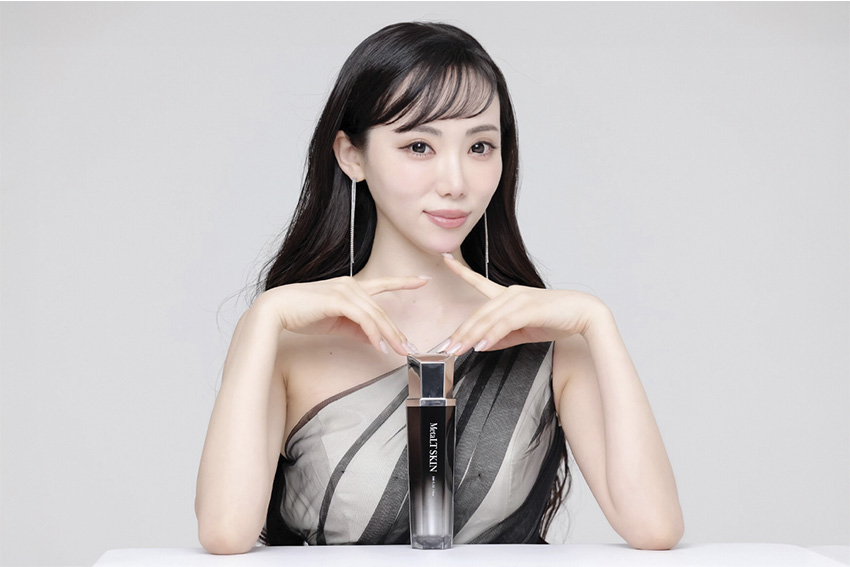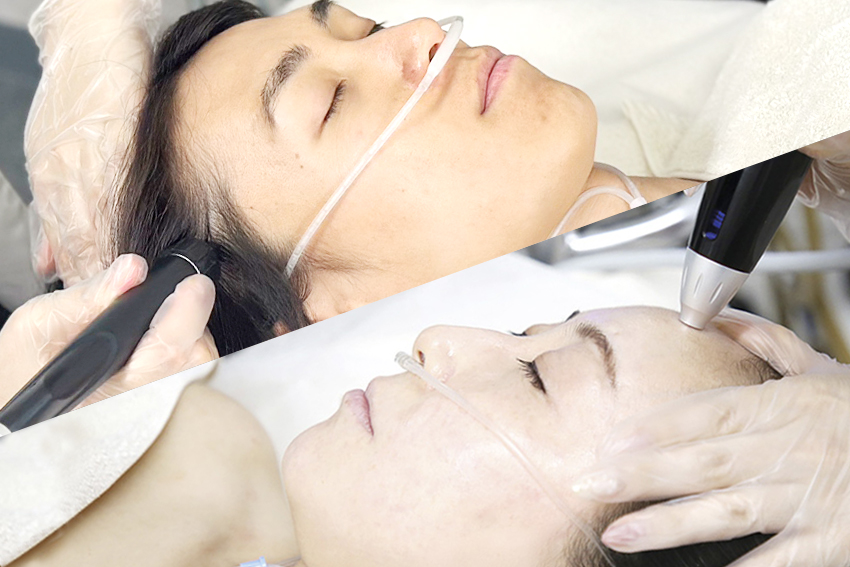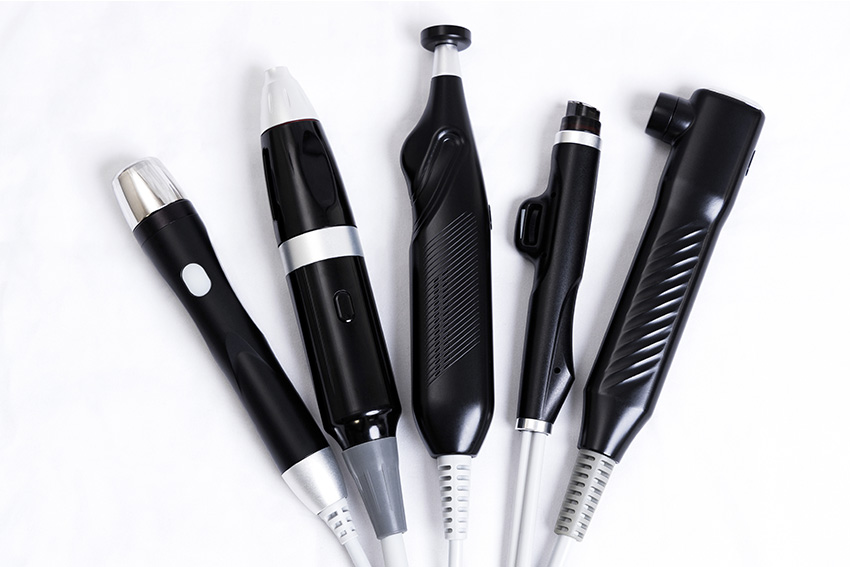Ayami Sato, President of NBS Co., Ltd., leads one of Japan's foremost beauty equipment companies with a focus on safety, innovation, and customer-first values. In this interview, she discusses NBS's unique approach to skincare, the importance of sustainable beauty, and her vision for international expansion.

Japanese beauty brands face stiff competition from the West and from newer beauty brands from South Korea. Yet hidden within this marketing narrative are intriguing dynamics. It is noteworthy that many of the active ingredients used by large international beauty products originate from Japan's strong ODM makers. Japan also has a very attractive “less is more” philosophy, which emphasizes high-value products with fewer, more effective ingredients. This is gaining a lot of momentum on the international stage. What are the advantages of Japanese beauty brands, and how do they compare to some competitors?
First of all, it’s about safety. Japanese people are very careful, and when human stem cells were offered in the market, we thought we needed formal evidence. We have to see it and be persuaded. We pursue such evidence, and then we make a judgment about whether to adopt, so we are very careful and vigilant. Therefore, globally, people realize that if a product is from Japan, it’s safe, and those kinds of things cannot be developed within two to three years. We have to spend a long time with a careful approach.
Second, we have a global viewpoint. There are some things which Japanese people do not have or there may be better options in another part of the world. If that is the case, we will learn from and adopt those options. In this way, we are very flexible, and such flexibility also earns trust. It’s not that original Japanese products are necessarily best, but we have that global viewpoint and we pick the best products or ingredients from around the world and that earns us trust.
When we look at the cosmetics market globally, it is expected to be valued at USD 661 billion by 2032. A big driver of this growth is expected to come from Generation Z due to social media and celebrity influencers. From your point of view, what would be the main drivers of growth?
I think it is unique. A while ago, we didn’t have many products, so whenever something new was launched in the market, everybody tried to buy it. Now, we have so many products. Therefore, we need something rare. Uniqueness is not only about being new or rare; the customers have to feel that the products fit them. That’s important.
It’s no secret that Japan has a demographic issue. In the next fifteen years, one in three people in Japan is expected to be over 60. This can lead to a labor shortage and a shrinking domestic market. It is also an opportunity for beauty and cosmetics brands to create new solutions, such as anti-aging and other products for an older customer segment. For your company in particular, what are some challenges and opportunities that these demographic changes provide?
You talked about age, but another important issue is that one in every two or three people has allergies or sensitive skin, so we cannot use strong ingredients. We have to find something natural and something acceptable for such people. We need to find ingredients that do not cause skin problems for these customers. Of course, we also see more people over 40, 50, or 60 years old. Still, on the other hand, the healthy lifespan has been extended, and so has the beauty lifespan, so we are producing products that contribute to the extension of the healthy lifespan and the beauty lifespan. The important thing is that we have to come up with products and services that fit consumers, and we have to narrow down the target. We cannot make products and services that satisfy everybody.
Human beings are natural creatures, so we have to get along with the environment and the earth. Nowadays, people talk about CO2 and nobody thinks that beauty machines have anything to do with improving the environment. However, currently we are developing hydrogen-based solutions, so that is an example of us trying to use something that exists in nature. More generally, using natural ingredients in products will be important for the future.
NBS, one of Japan's leading beauty device manufacturers specializing in hair removal, has been selling hair removal machines since 2004. The company supplies beauty equipment to more than 4,200 salons and beauty parlors across Japan. How has your business evolved over time, and what competitive advantages do you have?
Over the years, people have paid attention to safety, and fifteen to twenty years ago, NBS began to pursue expertise and specialization, as you have mentioned. We appealed to men, ladies, juniors, and kids, but for home machines we are focusing on gender and hair and skin qualities. We are trying to do order-made hair removal, so it’s a matter of safety, effectiveness, and the level at which we can achieve order-made products.
Besides the machines we sell, we also provide support by holding seminars once every month. The content is something like consulting. Once you join the seminar, there will be some ideas which you can immediately use. You don’t have to spend much time, but if you become a little creative, you can improve the situation. For example, improve the unit price and attract more customers. For similar seminars, there are usually 30 to 40 companies attending, but for our seminars, there are 800 companies that attend, and we have never had less than 400. Thus, our support abilities and our advantage in machines are our strengths. There are some companies who don’t know about NBS, but they may know about our CLEAR/SP machines.

As the founder of the company, what was the motivation for creating this firm and what vision did you have when you started this company?
This company has different owners. I joined the company as a new graduate. I had experience with genba, working on the frontline, and then I was promoted all the way up to president. Maybe I shouldn’t say this, but in this aesthetician’s world, the beauty world, there are many people who are engaged in this industry without knowing about it. They think they can make money, so they do it. It’s not a beauty or customer-first mindset. I was surprised that there were so many companies who were only chasing profit rather than knowing the details of the industry, so I felt a gap. I wanted to make this an esthetician and customer-first company. That was my motivation at the beginning.
An aesthetician has the job of making people beautiful. However, you can see many aestheticians who are unhealthy, have rough skin, and are always fatigued and tired. Actually, I was like that a long time ago, but if you want to make people beautiful, those people have to be healthy. You can become beautiful only if you are healthy, so I want to make people healthy and then pursue beauty. Therefore, I was searching for such beauty content, and I wanted to do manufacturing. That was my perspective.
If we go for aestheticians first, I’m sure they will have the mindset of customers first, so we want to remove such a gap.
You offer a variety of products, and you sell to both businesses and consumers. Two of these products are hair removal machines, part of the CLEAR/SP series. What makes these products so effective, and what technological advancements do they possess?
Genba is a Japanese term that means “the actual place” and refers to the frontline in manufacturing, and I always have that Genba perspective. There are many people who hate machines and equipment because beauty treatments are usually done 100% manually, so I tried to make machines that aestheticians who are working in a genba environment can use just like their hands. I was very careful about the length of the cord and hose, and I was very careful to make the machine portable with a handle so that aestheticians could carry it easily. The machine has a THR mode that uses infrared. It’s a trade secret, so I cannot give details, but usually, when you do hair removal, it reacts to the color element, and the hair reacts to the light, but the skin also reacts to light because it has melanin. That is especially true for Japanese people, but our THR mode first penetrates the skin and then reacts with the hair so that it will be safe for the skin and effective for hair removal.
Your company seems to take great care and consideration regarding ingredients used in its products. For example, some ingredients include hyaluronic acid, licorice extract, collagen, soybean seed extract, and pomegranate peel extract. What factors do you consider when choosing what ingredients to use in your products?
The first consideration is our safety testing and how much evidence we can produce about ingredient safety.
Leaving aside the effectiveness and efficiency of the ingredients, recently, many people investigate ingredients online. They will search for the main ingredients. I also check and see what kind of articles I can find. Even if the results for an ingredient are good, if I find some negative content for that ingredient, sometimes I change the priorities.

Your company not only manufactures and sells cosmetics products, but you also provide consulting and other management services to assist in the operations of salons. Why did you decide to expand your offerings into the business side of salon operations, and what expertise do you and your team offer?
For salons to succeed, there are two factors. First, we have to provide a machine that generates results, but more is needed to make a salon successful. Technical expertise and business know-how are also needed. Imagine you have a delicious French restaurant near your house, but the customer service is bad, or the servers put their fingers in the dishes, or they do not act flexibly. In that case, even if the food is delicious, you will not go. Likewise, if the service is good, but the food could be more delicious, you will not go to that restaurant. Therefore, it’s a balance of a machine that generates results with know-how and provides good service. Those things are needed for a salon to be successful, so we decided to help salon operations with them.
Managers and executives are very lonely. I am such a person, so I also feel lonely, and if the top management of the salon has some kind of problem or feels pressure, I want them to feel that we are supporting them. 24 hours, 365 days, I want them to feel that there is someone supporting them, and that will enhance their motivation. I want to give them emotional support as well.
We are also always able to provide the latest information related to salons, and we provide a new menu because usually, when you operate a salon, you have to consider the menu that matches the season, and that takes time. We support them with this.
Not only are you a cosmetic business, but you have also entered the fitness industry. You sell treadmills, bench presses, free weights, and other fitness items. Why did you decide to enter this market, and what opportunities do you see?
We work in the beauty industry, and the scope of that industry is very wide, so it is very difficult to draw a line between beauty and health. As I said, if you want to become beautiful, you also have to be healthy. Currently, we are not providing expensive machines, rather we are providing machines that can be used by anybody. Fitness machines are not like beauty machines. Our beauty machine is unique.
Both small and large businesses talk about the importance of having collaborative partnerships to be competitive on a global scale. What existing partnerships do you have overseas, and are you open to creating new partnerships? If so, which market do you believe has the most growth potential to find partners for your products?
We have partners in Hong Kong and China. We are a beauty machine manufacturer for businesses, but we also make the BiiTo2 and BiiTo2 Cool beauty devices for home use. During COVID-19, 160,000 units were sold. We were so successful because it is a beauty device that can be used at home and is made by a recognized business beauty device manufacturer. Panasonic and other brands also make beauty machines, but they are leading home appliance companies. So, rather than thinking about which market or which commercial channel, we want to leverage the markets that use our other devices made for businesses.
Do you have any specific plan to internationalize your business operations further, and if so, where do you see the most opportunity?
We are targeting ASEAN. During COVID-19, we thought China would be the main target, but in China, the regulations for devices have changed frequently. For example, beauty devices suddenly became medical devices. With that being the case, dealers can no longer sell our products, so the country risk for China is relatively high. We love China, the food, people, and culture, so we want to do business there someday, but as the regulations are changing so much, we have to be careful. However, in November, Cosmoprof Asia, which is the leading B2B international beauty trade show, will be held in Hong Kong, and we hope to find some partner companies there,
Your company is celebrating its 18th anniversary. Let's imagine that we will come back in two years for your 20th anniversary to interview you again. What would you tell us? What dreams do you have for this company, and how would you like your company to be seen through the eyes of the global market?
We want to continue to pursue skin beauty, and we want to roll out products based on that concept. I want everyone, including my people, to feel that they like themselves. If they like themselves, their lives will become colorful. That's something I want to accomplish through member education and manufacturing because if you like yourself, you can be kind to everyone. I really believe that from such a perspective, the beauty industry can contribute to society. In two years, I want to make inroads into the global market to spread my thoughts, so I want to develop products that can communicate my thoughts. Starting with ASEAN, I hope we will make inroads in the global market and generate good results.
0 COMMENTS